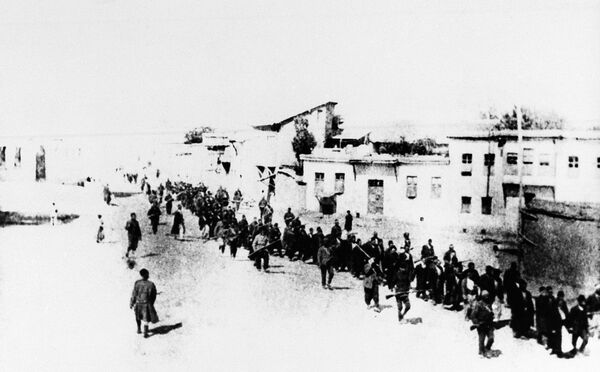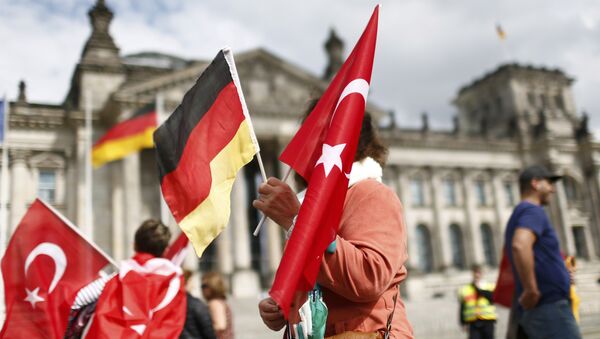This comes in the wake of warnings from Turkey's leadership that the decision would adversely affect Turkish-German relations, given that over a century on, the Turkish government still refuses to acknowledge the term "genocide", referring simply to the "events of 1915".
In 2007, the Turkish General Staff, which presides of the Armed Forces in Turkey, stated that the term 'genocide' is not valid, saying:
"The so-called Armenian genocide is a totally made-up, unreal and unfounded scenario of imagination based on enmity towards Turks and lacking any valid instruments, proofs or any legal basis."
Turkish President Recap Tayyip Erdogan continues to hold this position and has leveled warnings towards Germany with regards to Thursday's vote, saying:
"If Germany would go to such a step, it will damage the diplomatic, trade, political and military relations with Turkey."
Bundestag's vote comes at a delicate time for relations between the two countries, given Turkey's agreement with the EU to take in a sizable proportion of refugees fleeing into Europe — a deal which now looks less and less stable, given the announcement that Ankara has now withdrawn its Ambassador to Germany.
The Armenian Genocide refers to the Ottoman government's systematic extermination of Armenians during 1915 — 1917. The genocide began with the killing of the population's able bodied men, followed by the deportation of women, children, the elderly and infirm who were lead on death marches into the Syrian desert.

Theo M van Lint, Professor of Armenian Studies at the University of Oxford, told Sputnik that the position held by the Turkish government didn't hold up:
"It is completely clear that what happened was genocide and [Turkey's position] is just a continuation of a denialist policy. There can be no doubt about it whatsoever, what happened is completely in line with the United Nations definition of genocide, accepted shortly after the second world war by Raphael Lemkin. It is just Turkey — that is to say its government — that doesn't want to come to terms with what happened."
He added: "I'm very glad that Germany has accepted this, because Germany — after the Second World War — did come to terms with its own past, and I think this is long overdue… If you never come to terms with your past then it lingers."
Professor van Lint also argued that the Armenian genocide has received very little attention in terms of a mainstream understanding of history in the region, and that western governments — such as Britain and the US — have been unhelpful, saying:
"They are still unfortunately complicit in a denial — I try to put it very carefully, but I think it is very grave — not encouraging Turkey to come to terms with its past, thereby giving Turkey the impression that it can, with impunity, continue with a denialist course."
In two terms for @BarackObama, no mention of the #ArmenianGenocide. Promise Broken https://t.co/uQCspyaDlg pic.twitter.com/EYpB6cyzZT
— PolitiFact (@PolitiFact) May 11, 2016
Last year saw the 100th anniversary of the Armenian genocide — during which an estimated 1.2 million Armenians were killed — it has now been officially recognised by 27 countries. Israel, the United Kingdom and the United States however, continue not to recognise the events as "genocide".


